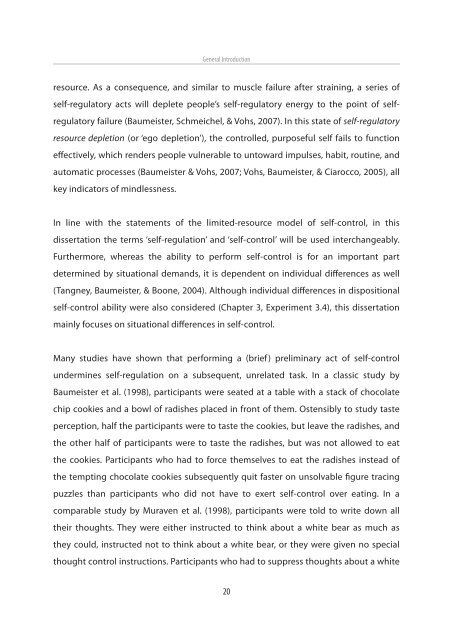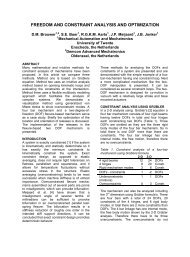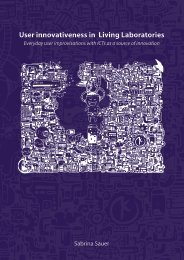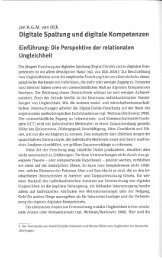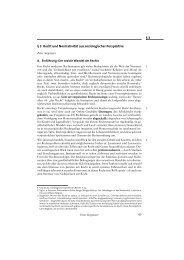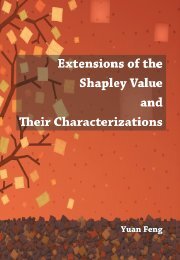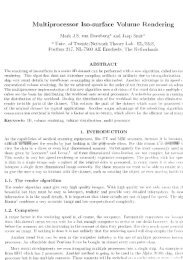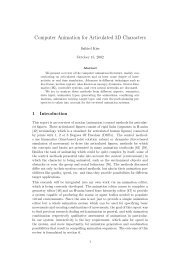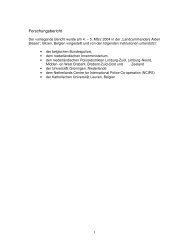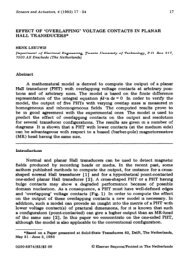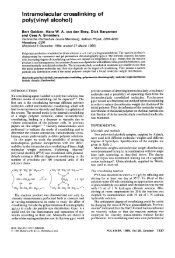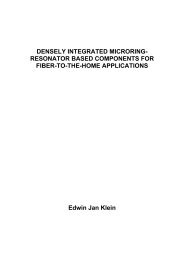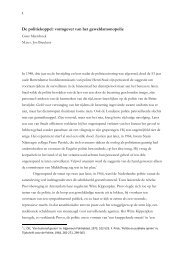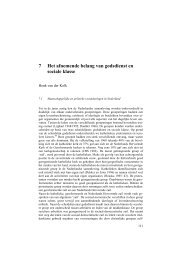Chapter 1 - Universiteit Twente
Chapter 1 - Universiteit Twente
Chapter 1 - Universiteit Twente
You also want an ePaper? Increase the reach of your titles
YUMPU automatically turns print PDFs into web optimized ePapers that Google loves.
General Introduction<br />
resource. As a consequence, and similar to muscle failure after straining, a series of<br />
self-regulatory acts will deplete people’s self-regulatory energy to the point of selfregulatory<br />
failure (Baumeister, Schmeichel, & Vohs, 2007). In this state of self-regulatory<br />
resource depletion (or ‘ego depletion’), the controlled, purposeful self fails to function<br />
effectively, which renders people vulnerable to untoward impulses, habit, routine, and<br />
automatic processes (Baumeister & Vohs, 2007; Vohs, Baumeister, & Ciarocco, 2005), all<br />
key indicators of mindlessness.<br />
In line with the statements of the limited-resource model of self-control, in this<br />
dissertation the terms ‘self-regulation’ and ‘self-control’ will be used interchangeably.<br />
Furthermore, whereas the ability to perform self-control is for an important part<br />
determined by situational demands, it is dependent on individual differences as well<br />
(Tangney, Baumeister, & Boone, 2004). Although individual differences in dispositional<br />
self-control ability were also considered (<strong>Chapter</strong> 3, Experiment 3.4), this dissertation<br />
mainly focuses on situational differences in self-control.<br />
Many studies have shown that performing a (brief) preliminary act of self-control<br />
undermines self-regulation on a subsequent, unrelated task. In a classic study by<br />
Baumeister et al. (1998), participants were seated at a table with a stack of chocolate<br />
chip cookies and a bowl of radishes placed in front of them. Ostensibly to study taste<br />
perception, half the participants were to taste the cookies, but leave the radishes, and<br />
the other half of participants were to taste the radishes, but was not allowed to eat<br />
the cookies. Participants who had to force themselves to eat the radishes instead of<br />
the tempting chocolate cookies subsequently quit faster on unsolvable figure tracing<br />
puzzles than participants who did not have to exert self-control over eating. In a<br />
comparable study by Muraven et al. (1998), participants were told to write down all<br />
their thoughts. They were either instructed to think about a white bear as much as<br />
they could, instructed not to think about a white bear, or they were given no special<br />
thought control instructions. Participants who had to suppress thoughts about a white<br />
20


